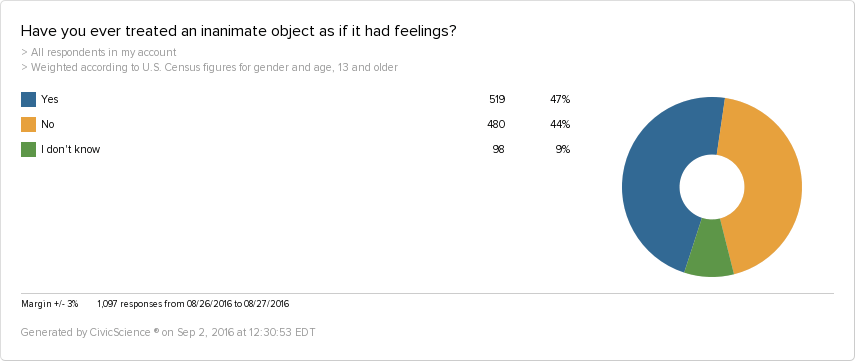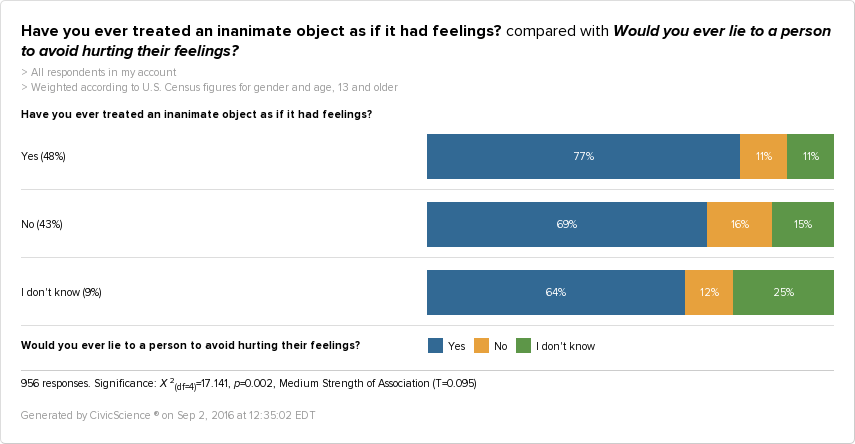A recent study published by the Telegraph found that if robots have enough human characteristics, people will lie to them in order to avoid hurting their feelings. These conclusions were drawn using iterations of a robot named Bert at two universities in London.
After reading about the study, I knew that I would be one of those who lied to the robots in order to avoid hurting their feelings, even if I logically knew they didn’t have any. I was curious if other people would answer similarly.
The results are neck-and-neck, but as it turns out, more people than not have treated inanimate objects as if they had feelings. Phew! It’s good to know that I’m not the only one who treats my iPhone and car with some compassion!
This “sensitive” group, if you will, consists mostly of women between the ages of 18 and 34. They are more likely to live with their parents (I don’t) and are more likely to favor socially-conscious businesses (I do!). Heavy social media users and city dwellers are also more likely to answer yes.
I wonder if this could be attributed to all of the people they constantly come into contact with. Though many would suggest this constant noise and exposure numbs and desensitizes those in cities or those who use social media heavily, this data may suggest otherwise. If this group exhibits compassion towards objects, they most likely exhibit compassion towards humans as well. That is just a hunch. There may still be hope for us city-slickers yet!
To echo the Bert study, we also delved into further comparison.
77% of those who answered that they have treated an inanimate object as if it had feelings would also lie to avoid hurting someone’s feelings. Would this 77% also lie to a robot?
There have been years of debate questioning if robots will ever reach the point of sentience or self-sufficiency. There are even concerns that they will one day become smarter than humans (robot takeover, anyone?).
It turns out that none of that may matter, so long as the robot has a smile.










